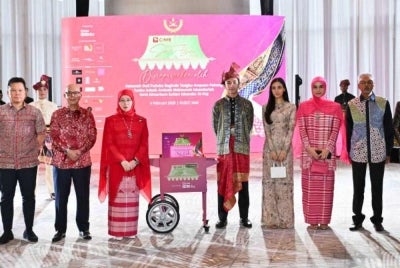Medical Debt: Drake pledges to help foot fan's father's cancer bill but what is the reality on the ground?
Despite being one of the wealthiest nations globally, the US struggles with a healthcare system that leaves many financially vulnerable.

SHAH ALAM - At his recent concert in Oklahoma City, rap sensation Drake showcased not only his musical prowess but also his compassionate side.
Amidst the pulsating beats and electrifying energy of the crowd, Drake took a moment to connect with his fans in a profound way, demonstrating the power of empathy and generosity.
The rapper made headlines by addressing the medical debt crisis plaguing many Americans, as he pledged to settle the medical debt of one fan's late father and gifted $30,000 (RM141,026.14) to another fan who had triumphed over cancer.
These acts of kindness were prompted by the fans' heartfelt signs, catching Drake's attention among the sea of concertgoers.
Medical Bankruptcy: A Growing Phenomenon in the United States
While Drake's kind gestures brought joy to those fortunate fans, they also shed light on a pressing issue affecting millions across the United States (US) – medical debt.
Despite being one of the wealthiest nations globally, the US struggles with a healthcare system that leaves many financially vulnerable.
According to a 2016 Kaiser Family Foundation and New York Times survey, over a quarter of Americans face challenges in paying their medical bills, often leading to crippling debt and bankruptcy.
The high cost of medical care, coupled with unexpected health emergencies, exacerbates this issue.
The average hospital stay in the US costs a staggering $5,220 per day, significantly higher than in other developed nations like Australia.
Medical debt transcends socioeconomic boundaries, impacting individuals regardless of their financial prudence.
More than half of Americans burdened by medical debt have no other outstanding debts.
The financial strain imposed by medical bills can hinder individuals' ability to secure loans or maintain basic necessities.

Malaysia's Healthcare Dilemma: Balancing Affordability and Sustainability
In contrast to the US, Malaysia boasts an affordable healthcare system, offering its citizens accessible medical care at nominal costs.
However, recent proposals by Prime Minister Datuk Seri Anwar Ibrahim suggested that the sustainability of Malaysia's healthcare subsidies was under scrutiny.
Anwar's proposition end universally subsidised healthcare reflects concerns about fiscal responsibility and equity.
While Malaysia's subsidised healthcare has been instrumental in promoting public welfare, there are growing apprehensions about its long-term viability.
The Prime Minister's proposal to introduce differential pricing based on income levels aims to ensure that government subsidies are targeted towards those most in need.
“For example, in hospitals, the fees for treatment in government hospitals are so low. For the poor, there is now the Madani (Medical Scheme) and also free treatment (in public health care facilities), but the rich also get the same.
“Is it wrong if the government were to say – we retain and improve health care, so that it’s better for all citizens – but for the wealthiest, we impose higher charges. Agree or not?," he was reported saying last year.
Download Sinar Daily application.Click Here!















